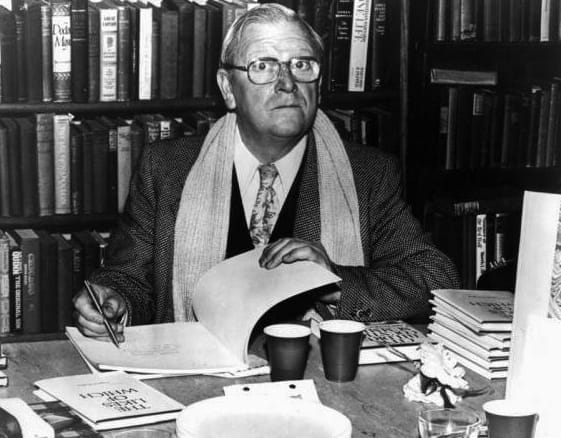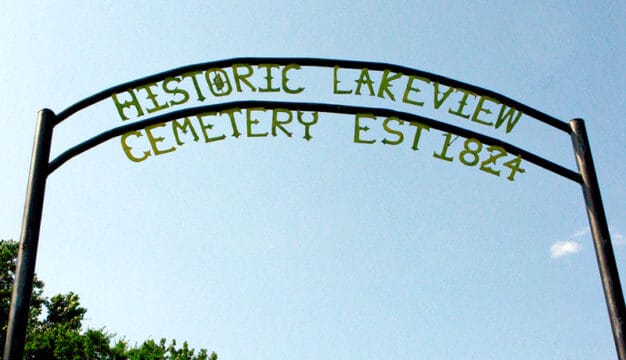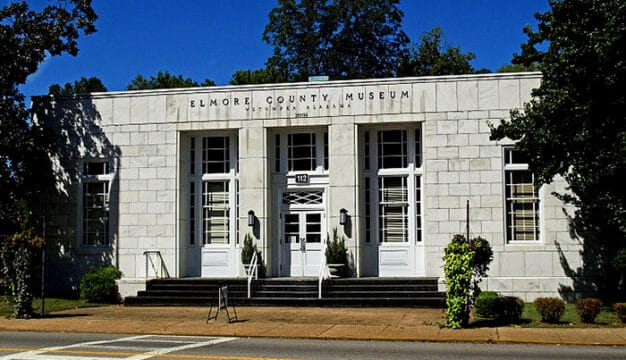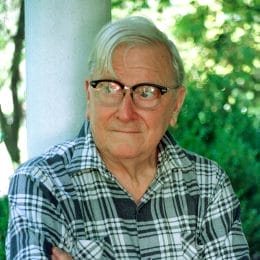Eugene Walter
Eugene Ferdinand Walter Jr. (1921-1998) was a writer, editor, set and costume designer, musician, and actor. His interests were wide and varied. In addition to his artistic pursuits, he was also a puppeteer, gourmet chef, cryptographer, translator, and raconteur. Walter created the alter-egos Dr. S. Willoughby and Professor James B. Willoughby as pseudonyms. Known as Mobile’s “Renaissance man,” he liked to tell people that he carried a shoebox full of Alabama red clay wherever he travelled.
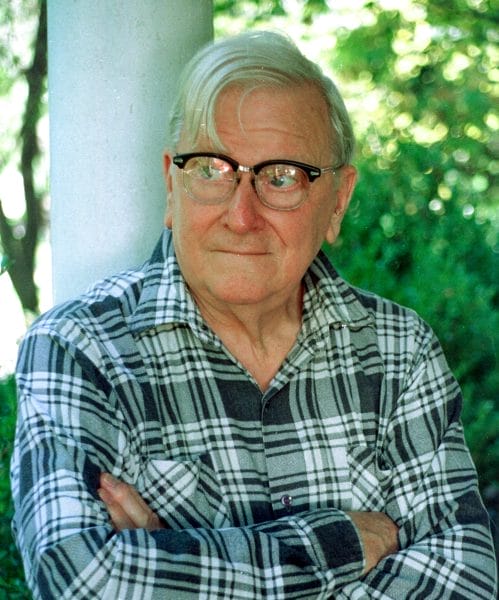 Eugene Walter
Born on November 30, 1921, and raised in Mobile, Mobile County, Walter’s parents were Eugene and Muriel (Sabina) Walter. According to his memoirs, Walter ran away from home at the age of three and was raised by his paternal grandparents, who inspired his love of food and language. His Austrian grandmother, who spoke French when she wanted to share gossip, inspired his desire to live abroad. He became acquainted with Truman Capote, who was known as Bulldog Persons, when both were children.
Eugene Walter
Born on November 30, 1921, and raised in Mobile, Mobile County, Walter’s parents were Eugene and Muriel (Sabina) Walter. According to his memoirs, Walter ran away from home at the age of three and was raised by his paternal grandparents, who inspired his love of food and language. His Austrian grandmother, who spoke French when she wanted to share gossip, inspired his desire to live abroad. He became acquainted with Truman Capote, who was known as Bulldog Persons, when both were children.
At the deaths of his grandparents, he was informally adopted by Hammond Gayfer, who was the heir to Gayfer’s Department Stores. He later told friends and acquaintances that he had lived in the back of a bookstore at the age of 10. His hometown, which he described as unique in American society for its multicultural flavor, always loomed large in his storytelling. In adolescence, he became affiliated with the Children’s Theatre Guild and wrote and performed marionette shows. Walter attended Spring Hill College in Mobile and the University of Alabama‘s Mobile extension.
Walter joined the Civilian Conservation Corps after high school, working as a coffin painter in rural Mississippi. He then spent three years stationed in the Aleutian Islands as a cryptographer for the U.S. Army Airways Communications Systems during World War II. After the war, he moved to New York, settling in Greenwich Village. He worked in a rare book store and at the New York Public Library and worked on set designs. He also took painting classes at the Museum of Modern Art, where he was credited with an early form of performance art—termed a “happening,”—that involved a spontaneous group performance in the sculpture garden.
In 1951, he moved to Paris to study at the Alliance Française and the Sorbonne. Nicknamed Tum-de-Tum during those years, he and his friends formed a creative and bohemian group. His work, including articles, stories, and poems, was published in the early editions of the Paris Review. A founding editor, he remained an associate editor of the magazine from 1951 to 1960. He interviewed such noted authors as Isak Dineson (pseudonym of Karen Blixen) and Robert Penn Warren. While living in Paris, he met and became a close friend and confidante of American-born Princess Marguerite (nee Chapin) Caetina di Bassiano, who was a well-known patron of the arts. Walter eventually moved to Rome to work with her on Botteghe Oscure, a literary journal that published poetry and prose in several languages between 1948 and 1960. During the 1950s, he also served as an associate editor at Folder, Whetstone, Intro Bulletin, Wormwood Review, and, lastly, Transatlantic Review, which he remained with until his death in 1998. Walter was fluent in French, Italian, and Spanish but always regretted that he had never mastered Portuguese, which he found especially beautiful and romantic.
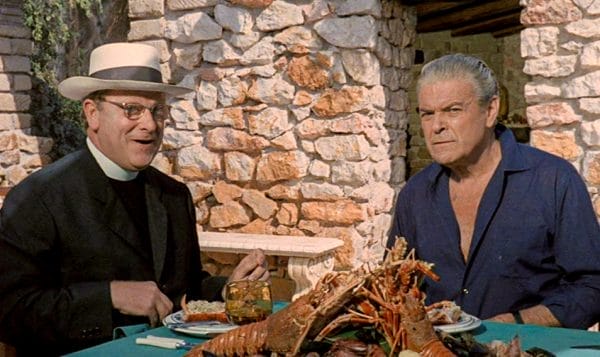 Eugene Walter in Rome
He also completed his first novel, The Untidy Pilgrim, which he had started in New York. The manuscript won the Lippincott Fiction Prize for Young Novelists in 1952, with a cash prize of $2,500, and the novel was published two years later. His first collection of poetry, Monkey Poems, was privately printed in 1953. In 1956, Walter received a Rockefeller Fellowship and returned to Rome, where he immersed himself in the Italian cinema. Walter served as a translator for renowned directors Federico Fellini and Lina Wertmuller, and appeared in more than 100 feature films, mostly in minor roles, including Fellini’s 8½ (1963) and Juliet of the Spirits (1965). He continued to write during this time as well and in 1959 received the O. Henry Award and the Prix Guilloux for his short story “I Love You Batty Sisters.” His second novel, Love You Good, See You Later, was published in 1964. He also produced the English translation of Fellini’s Satyricon, which included the shooting script and other materials relating to the director’s film version of the ancient Roman text by Petronius. Walter also composed music for several films.
Eugene Walter in Rome
He also completed his first novel, The Untidy Pilgrim, which he had started in New York. The manuscript won the Lippincott Fiction Prize for Young Novelists in 1952, with a cash prize of $2,500, and the novel was published two years later. His first collection of poetry, Monkey Poems, was privately printed in 1953. In 1956, Walter received a Rockefeller Fellowship and returned to Rome, where he immersed himself in the Italian cinema. Walter served as a translator for renowned directors Federico Fellini and Lina Wertmuller, and appeared in more than 100 feature films, mostly in minor roles, including Fellini’s 8½ (1963) and Juliet of the Spirits (1965). He continued to write during this time as well and in 1959 received the O. Henry Award and the Prix Guilloux for his short story “I Love You Batty Sisters.” His second novel, Love You Good, See You Later, was published in 1964. He also produced the English translation of Fellini’s Satyricon, which included the shooting script and other materials relating to the director’s film version of the ancient Roman text by Petronius. Walter also composed music for several films.
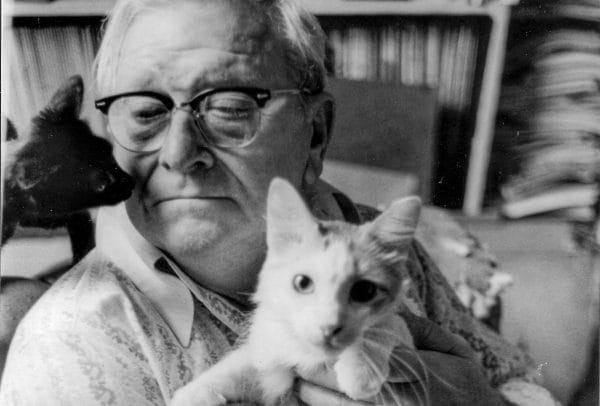 Eugene Walter and Cats
Walter was also well known for his cooking—during his years in Paris, he entertained such luminaries as Anais Nin, Judy Garland, William Faulkner, Dylan Thomas, Franco Zefferelli, Truman Capote, and fellow Alabamian Tallulah Bankhead. In the early 1970s, he turned his writing attention to food and in 1971 published American Cooking: Southern Style in the Time-Life Foods of the World Series; the book became a best-seller. Other cookbooks included Delectable Dishes from Termite Hall (1982) and Hints & Pinches (1991). His cooking was praised for its simplicity. He encouraged the use of organic foods and raised herbs and vegetables everywhere he lived. He also contributed articles to various magazines, including Gourmet, Old Mobile, Ladies Home Journal, and Harper’s Bazaar. His articles featured odd characters, and he often used the Alabama of his childhood as a setting, describing the connection between culture and food in the South. He also created whimsical drawings to accompany his poetry, essays, and article, often featuring cats—a lifelong love—in his illustrations.
Eugene Walter and Cats
Walter was also well known for his cooking—during his years in Paris, he entertained such luminaries as Anais Nin, Judy Garland, William Faulkner, Dylan Thomas, Franco Zefferelli, Truman Capote, and fellow Alabamian Tallulah Bankhead. In the early 1970s, he turned his writing attention to food and in 1971 published American Cooking: Southern Style in the Time-Life Foods of the World Series; the book became a best-seller. Other cookbooks included Delectable Dishes from Termite Hall (1982) and Hints & Pinches (1991). His cooking was praised for its simplicity. He encouraged the use of organic foods and raised herbs and vegetables everywhere he lived. He also contributed articles to various magazines, including Gourmet, Old Mobile, Ladies Home Journal, and Harper’s Bazaar. His articles featured odd characters, and he often used the Alabama of his childhood as a setting, describing the connection between culture and food in the South. He also created whimsical drawings to accompany his poetry, essays, and article, often featuring cats—a lifelong love—in his illustrations.
Walter returned to Mobile in 1979 and became active in local, state, and regional arts, writing about gardening, food, and theater in the region. He travelled around the state for readings, book signings, and other author events. He also contributed a 10-minute segment, called “Eugene-at-Large,” to local public radio station WHIL-FM. Walter died of liver cancer on March 29, 1998, and the city of Mobile gave special permission for his remains to be buried in historic Church Street Graveyard. During his last years, journalist and friend Katherine Clark recorded hours of interviews with Walter about his life and published the edited material as Milking the Moon in 2001. In 2023, Walter was inducted posthumously into the Alabama Writers Hall of Fame.
Selected Works by Eugene Walter
Jennie the Watercress Girl (1947)
Monkey Poems (1953)
The Untidy Pilgrim (1954)
Love You Good, See You Later (1964)
American Cooking: Southern Style (1971)
Hints & Pinches (2001)
Further Reading
- Gee, Diane. “An Afternoon with Eugene Walter.” Southern Living 33 (June 1998): 110.
- Walter, Eugene, and Katherine Clark. Milking the Moon: A Southerner’s Story of Life on This Planet. New York: Crown, 2001.
- Yardley, Jonathan. “The Life of the Party.” Washington Post August 19, 2001, BW 01.
